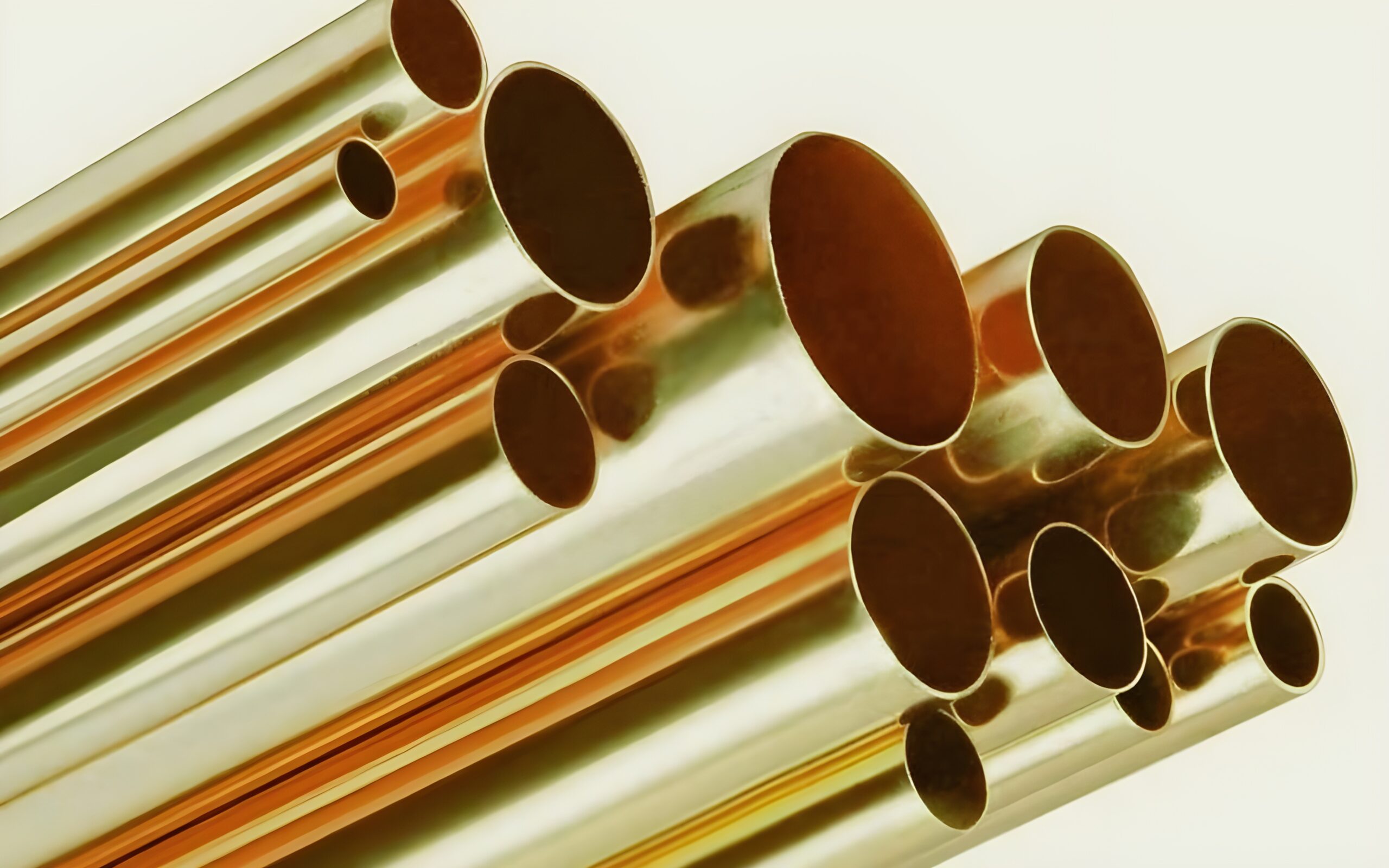70/30 Brass
- Home
- >
- Lead Free Brass
- >
- 70/30 Brass

70/30 Brass
Lead-Free Brass 70/30, also known as Cartridge Brass or 70/30 Brass, is a copper-zinc alloy known for its excellent corrosion resistance, good strength, and ductility. It is commonly used in applications requiring good mechanical properties and resistance to dezincification.
Composition:
- Copper (Cu): 70%
- Zinc (Zn): 30%
- Lead (Pb): <0.09% (Lead-Free)
Grades
ASTM B 135 C 26000:
- ASTM B135: Standard Specification for Seamless Brass Tube.
- C26000: Designation for 70/30 Brass in this standard.
BS 2871 Part 3 CZ - 126:
- British Standard for copper and copper alloys – Tubes.
- CZ 126: Designation for 70/30 Brass in this standard.
EN 12449 CuZn30As CW 505L:
- European standard for copper and copper alloys – Seamless, round tubes for general purposes.
- CW 505L: European designation for 70/30 Brass.
NFA 51 102 CuZn30:
- French standard for copper and copper alloys.
- CuZn30: Designation for 70/30 Brass.
JIS H 3300 C 2600:
- Japanese Industrial Standard for copper and copper alloy seamless tubes.
- C 2600: Japanese designation for 70/30 Brass.
AS 1572 26130:
- Australian standard for copper and copper alloy seamless tubes.
- 26130: Designation for 70/30 Brass.
Properties:
- Corrosion Resistance:
- Excellent resistance to corrosion in various environments, including freshwater and mildly acidic conditions.
- Good resistance to dezincification and stress corrosion cracking.
- Mechanical Properties:
- Tensile Strength: Typically around 300-450 MPa.
- Yield Strength: Approximately 100-200 MPa.
- Elongation: Generally around 30-45%, indicating good ductility.
- Hardness: Moderate hardness, with a typical Brinell hardness number (HB) of around 70-110.
- Thermal and Electrical Conductivity:
- Good thermal conductivity, making it suitable for heat exchanger applications.
- Moderate electrical conductivity, less than pure copper but sufficient for many industrial uses.
Applications:
Plumbing and Heating: Used extensively in plumbing systems, fittings, and valves due to its corrosion resistance and ease of fabrication.
Heat Exchangers: Ideal for heat exchanger tubes and other thermal applications due to its good thermal conductivity.
Industrial Applications: Employed in various industrial equipment, including marine hardware and fasteners.
Electrical Applications: Used in electrical connectors and components where moderate conductivity is sufficient.
